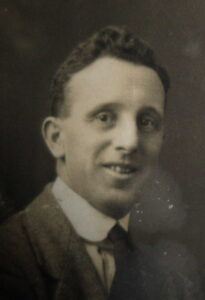Genealogy vs Family History
When we refer to a Genealogist or a Family Historian, as we talking about the same thing? Not exactly…
Definitions:
Genealogy is the retrieval of vital and familial data from records of various types, and its ordering into meaningful relationship patterns. It focuses on the study of a person’s direct-line ancestors, and is from the Greek genealogia, the “study of generation” or “making of a pedigree”.
Family History is the integration of this data with social, economic, political contexts to develop a narrative. It has a much broader scope and refers to the more-holistic study of the people, places, objects, traditions and stories associated with a family
Genealogist vs Family Historian
Genealogists uncover facts, such as names, dates, and places of important life events, such as births, marriages and deaths, through historical documents including census, parish and government vital records. “Genealogy” might also refer to a report on the ancestral lineage of a person. A Genealogist mainly asks Who, What, Where & When.
Family Historians, in addition to discovering the basic facts of your ancestors’ lives, also collect and delve into family stories and the social context around the ‘facts’ to try and paint a picture of how your ancestors lived. They also could expand their research to cover the details and experiences of non-direct family members such as siblings, aunts, uncles and cousins. They also might pull additional details from a wider variety of sources, such as newspapers, maps, oral tradition and local histories. A Historian focuses on the How, along with the remaining-W, “Why?”.
The two terms are certainly not mutually exclusive; one can be both a genealogist and a family historian. But the two fields can also have different priorities. A genealogist, for example, might simply want to know the names and birthplaces of past ancestors, while a family historian would be equally as interested in reconstructing what those ancestors’ lives were like, and learning about other members of their nuclear families.
My view
I tend to walk both sides of the field. While I enjoy unearthing the facts around someone’s birth, marriage, death, etc., I then feel those facts should have some context to be able to better understand the person’s past. How did they live? Where did they live? What did they do for work? What major event’s did they experience?
Two personal examples
My paternal grandparents were married in Devon, England on February 5th, 1910. That is the basic fact that would generally satisfy a Genealogist, and would be sufficient for obtaining a a copy of an official marriage certificate. However, they lived in Greater Manchester at the time and that was a long journey to make for a wedding. Another oddity was that while my Grandmother’s Father was present and signed as a witness, no one from my Grandfather’s family appears to have been precent. The Family Historian in me wanted to discover why they made such a long trip, and why nobody from my Grandfather’s side attended. Based on further research, and talking to older relatives, I now have a fairly good idea of what had transpired, and that answers both of those questions. Within 2 years of their marriage the young couple, and their first child, had left England for Calgary, Alberta. (1911-1912)
A second example involves my Great Uncle Frederick Owen, who simply vanished from Manchester sometime after the 1911 census. After exhausting all the usual record sources  I could find no records of a marriage, death, or burial, until I happened to be on Newspapers.com and did a Europe-wide search for his name. Lo and behold a 3-line obituary from The Guardian Newspaper surfaced noting that he had died Jan 20th, 1925 in Montana, Switzerland. It also noted that he was 42 and resided in both Manchester and Singapore.
I could find no records of a marriage, death, or burial, until I happened to be on Newspapers.com and did a Europe-wide search for his name. Lo and behold a 3-line obituary from The Guardian Newspaper surfaced noting that he had died Jan 20th, 1925 in Montana, Switzerland. It also noted that he was 42 and resided in both Manchester and Singapore.
As a Genealogist I had answered the questions of where, when and what had happened to Frederick, but now I wanted to know why he was in Switzerland, and why he was also living in Singapore.
Putting my historian hat on, I reached out to a cousin who was able to fill in the blanks through stories from her father, as well as photos of Fred. It turned out he was employed as a newspaper reporter in Singapore. He was quite successful and was even part owner of a racehorse. Unfortunately he developed what was referred to as consumption and went to a clinic in Switzerland for treatment, which was a popular treatment option at the time. The treatment was obviously not successful and he passed away without returning to either Manchester or Singapore.
The last remaining questions for me are where was he buried? It would make sense it was in Switzerland, but I’ve been unable to so far find any record to support that. I also haven’t been able to identify which newspaper he was working for at the time. The search continues…
Leave a Comment
You must be logged in to post a comment.


